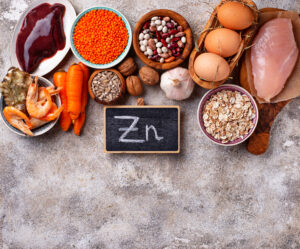Bloating occurs when your abdomen feels full or tight and can become uncomfortable or even painful, but natural remedies can provide much-needed relief.
Passler, nutritionist to celebrities like Bella Hadid and Adriana Lima, advises consuming organic vegetables, gluten-free grains, steamed and raw foods and probiotics in order to prevent bloating. But if it already occurs, try these simple daily habits for fast relief:
1. Eat Slowly
Bloated stomachs can often be the result of eating too quickly, leading to excess air intake. Eating slowly is more likely to help you reach fullness faster and prevent overeating and subsequent bloating.
Bloating can be caused by eating certain foods such as dairy products, beans and lentils, broccoli, Brussels sprouts, asparagus and garlic. It may also be due to food sensitivities or an overgrowth of bacteria in your colon which can be treated using probiotics and digestive enzymes.
If you find that certain foods seem to cause you discomfort, keeping a food diary may help identify which are triggers and help identify how best to eliminate them from your diet.
Other natural bloating remedies include cayenne pepper, which stimulates digestion and can relieve gas and pressure in the abdomen. Turmeric, another spice known for its anti-inflammatory properties, is another effective natural way to alleviate bloat; you can add turmeric to food or take it as a supplement for maximum effects. Throughout the day drinking water will also help flush away excess sodium from your system and relieve bloat symptoms.
2. Reduce Stress
Bloating can be uncomfortable and be an indicator of an underlying medical condition, so if it persists seek medical advice immediately. Short term solutions include increasing fiber consumption through food, water intake and exercise; for chronic constipation or other conditions that lead to bloating prescription may be required from a doctor.
Stress hinders digestion and may lead to bloating. There are various methods available for combatting it, such as getting enough restful sleep, practicing yoga or deep breathing exercises and meditation.
Long term, you can reduce bloating by eating a diet rich in organic vegetables, gluten-free grains and easily digestible proteins – as well as increasing fiber consumption with foods like quinoa, lentils and beans.
If you are experiencing bloating due to indigestion or digestive distress, try adding spices such as cayenne pepper to your food. Cayenne pepper has been proven to stimulate digestion while relieving pressure in the abdomen as well as alleviating cramping pains. Turmeric can also be an invaluable spice that improves digestive health.
3. Drink More Water
If you’re feeling bloated, switching from drinks such as soda that may exacerbate it to water can help reduce sodium and other toxins causing the discomfort. This simple swap could reduce bloating caused by excess sodium levels in your system.
Fiber-rich foods, including beans, lentils, quinoa, artichokes, berries and steamed veggies can all help to relieve bloating while stimulating digestive function. Probiotic-rich foods such as kimchi sauerkraut yogurt kefir also can reduce bloating effectively.
Trainers and nutrition experts Katrina Scott and Karena Dawn claim that adding cayenne pepper to your diet can help alleviate bloating caused by indigestion or digestive distress, by stimulating digestion, relieving pressure, and breaking down gas deposits. Cayenne pepper can stimulate digestion while relieving pressure to alleviate discomfort as well as break up any gas build-up in your digestive tract.
Add it to a smoothie, or drink hot water with it as an anti-bloating remedy. Another ingredient known to help alleviate bloat is asparagus – with its 92% water composition, asparagus has natural diuretic properties to flush excess fluids out of the body, prebiotics and insoluble fiber for digestive support, prebiotics and prebiotics that promote health in general and natural diuretic properties that release excess fluids naturally from within your system.
4. Avoid Chewing Gum
Chewing gum introduces air into your digestive tract, leading to gas and bloating. Furthermore, many chewing gums contain sweeteners such as xylitol or sorbitol that do not fully digest in your small intestine and move to your large intestine for fermentation – another source of discomfort and bloat.
An easy and natural way to deflate your stomach is sipping on peppermint or ginger tea, both herbal teas are proven to reduce bloat while aiding in digestion by increasing secretion of digestive juices and decreasing fluid retention in the colon.
Psyllium has been proven to effectively relieve bloating. Used as a gentle all-natural laxative to promote regularity and relieve constipation – often the source of bloating – this natural remedy is available at most supermarkets and health food stores.
Diets that include plenty of veggies, gluten-free grains, easily digestible proteins, and healthy fats may help prevent bloating; if it still occurs on occasion, try eating more fiber to boost digestive process speed or taking simethicone to break up trapped gas bubbles in your belly.
5. Avoid Smoking
Bloating refers to the buildup of trapped gas. It may be caused by eating salty foods, drinking carbonated beverages or swallowing air while eating. Other possible causes include taking antibiotics or other medication which alter your gut bacteria or eating too quickly – all factors which contribute to bloating can play a part. Additional contributing factors could include eating too quickly, being overweight, having menstrual symptoms that cause an overgrowth in small intestine bacteria, eating fatty foods or being lactose intolerant are other sources.
Blowing your nose or sucking on hard candies can also contribute to bloating by drawing in extra air. Inflammatory conditions like acid reflux or stomach inflammation may also play a part in this condition.
Keep a food diary to identify foods that cause bloating and avoid them in the future. If bloating is due to allergies or intolerances, consult your physician about having an allergy test done; in the meantime you could try over-the-counter medicines like simethicone (found in Maalox Anti-Gas) and activated charcoal products, like Beano, which may help break up gas bubbles and reduce bloat.





